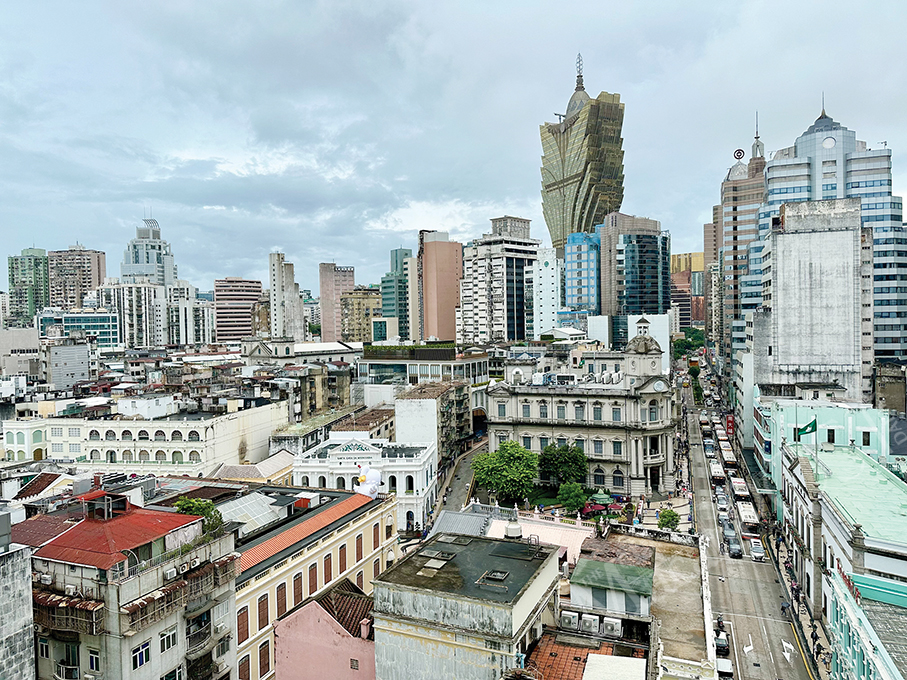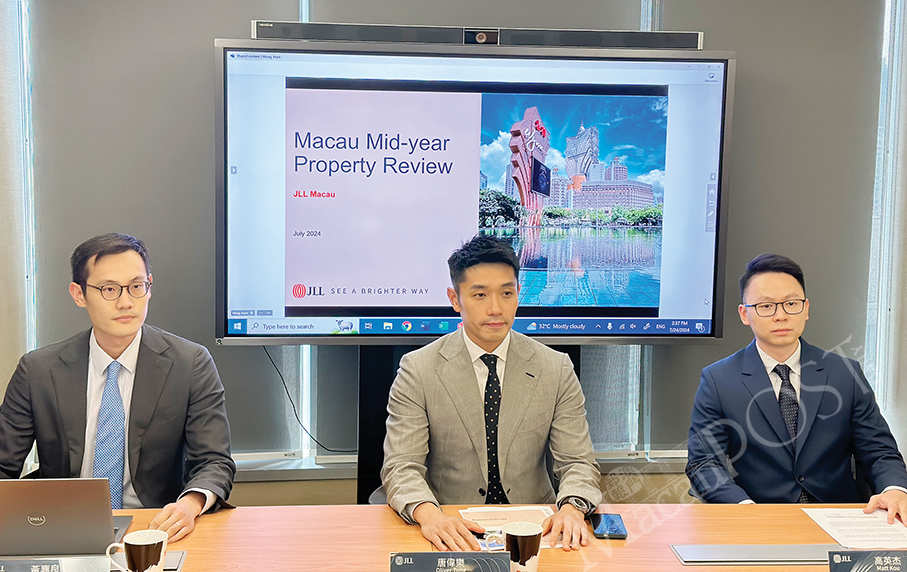At the end of last year, the government announced that it would relax its real-estate control measures in response to local residents’ aspirations to move into a new flat and improve their living environment so on April 20 it finally abolished its three immovable property stamp duties with immediate effect, and JLL Macau and Zhuhai General Manager Oliver Tong Wai Lok stressed yesterday that the removal of the cooling measures would help drive real-estate transactions back to a “reasonable and healthy” level, now forecasting overall property prices to drop up to 5.0 percent in the second half of this year.
In order to maintain the stable development of the real estate market, the government implemented in 2010 a range of real-estate demand management measures (commonly known as property cooling measures), including the Acquisition Stamp Duty (ASD), the Special Stamp Duty (SSD) on the change of the property owner’s name within two years of purchase, and the Special Stamp Duty on the purchase of properties mainly by non-local residents.
However, Secretary for Administration and Justice André Cheong Weng Chon announced early this year the scrapping of all property cooling measures, with effect from April 20: “The government has taken into account the current situation, considering the sufficient supply of various types of properties in recent years, and that the conditions are ready to abolish the three stamp duties in response to the demand for immovable property”, he said.
In addition, the Macau Monetary Authority (AMCM) issued on April 20 new guidelines to standardise the mortgage loan-to-value ratio cap at 70 percent for both local residents and non-local residents, and to suspend the stress test requirement of a two-percentage-point increase in mortgage interest rates.
Commercial real estate services company Jones Lang LaSalle Limited (JLL Macau) held a press conference yesterday at its local office in the Finance and IT Centre (FIT) in Nam Van about the US agency’s Macau Mid-year Property Review.
According to Tong, in the first half of 2024, the rental value of high-end residential flats increased by 0.3 percent, while that of mass residential rental values, i.e., small- and medium-sized residential flats, rose by 7.4 percent compared with the end of last year. With the performance of asset trending in the opposite direction amid developers lowering the asking prices of new projects, prices of high-end residential flats fell by 4.5 percent and that of small- and medium-sized residential flats dropped by 3.5 percent in the first half of 2024 compared with the end of last year.
Tong said that the property market outlook was still not optimistic in the short term, with Macau’s property loan delinquency rate having risen to 4.1 percent in May: “It is expected that the downward trend will continue in the second half of the year, with a drop of no more than 5.0 percent. However, depending on developers’ inventory and financial pressure, it is believed that property prices will be subject to even greater pressure if developers increase the incentives and reduce prices to remove their inventory”.
According to the Statistics and Census Bureau (DSEC), residential real-estate transactions in the first quarter of this year were mainly concentrated in Taipa at 82 units, Areia Preta district at 65 units and San Kio district at 41 units, with an average price of 87,249 patacas per square metre, 92,941 patacas per square metre and 55,318 patacas per square metre respectively.
JLL’s press conference yesterday cited statistics from the Finance Service Bureau (DSF) as noting that the property market transaction volume decreased by 12.7 percent year on year in the first half of this year, while presales recorded 172 units during the same period.
Tong pointed out that the removal of all property cooling measures by the government did impact to some degree the property market: “In terms of transactions we have roughly about 1,500 residential units transacted in the first six months, which is a good sign. But then when we compare the figure to last year, we see a double-digit drop in terms of transactions, even after the measures have been removed. And if we are comparing this to the figure of [pre-pandemic] 2019, it only represents around 40 percent of the total transactions…... So, we are seeing an impact on the residential market, but I think personally the impact is smaller than what I’ve expected”.
In terms of the retail property market, according to Tong, rents for prime street shops dipped by 0.5 percent in the first half of this year compared to the end of last year, with capital values dropping 4.6 percent in the same period.
Tong said that driven by the recovery of Macau’s tourism sector, the leasing of shops in tourism districts has increased, but shops elsewhere are under greater pressure, due to the “significant” changes of local residents and tourists’ shopping behaviours.

This photo taken from Hotel Central’s sightseeing promenade on Monday gives a bird’s eye view of a part of the city centre. – Photo: Yuki Lei

JLL Macau Director of Valuation and Risk Advisory Services Mark Wong Choi Si (left), Senior Manager of Leasing Matt Kou Ieng Kit (right), and JLL Macau & Zhuhai General Manager Oliver Tong Wai Lok pose during the real-estate agency’s Macau Mid-year Property Review press conference at JLL Macau’s office at the Finance and IT Centre of Macau in Nam Van. – Photo: Yuki Lei








